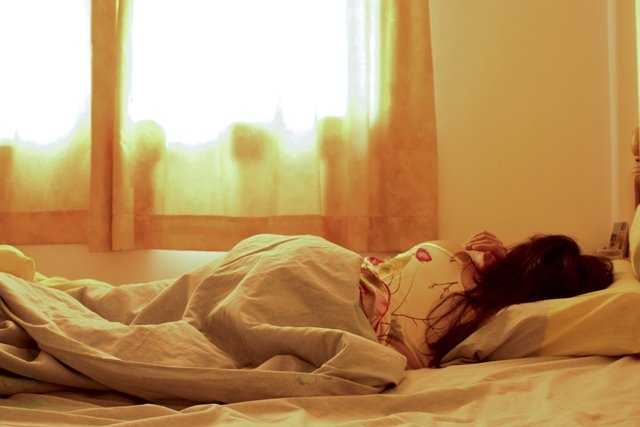
Just 10 minutes of exercise a day could make a difference in the duration and quality of sleep, the survey by the non-profit National Sleep Foundation showed.
"We found that exercise and great sleep go together, hand in hand," Max Hirshkowitz, a sleep researcher and the chair of the poll task force, said in an interview.
"We also found a step-wise increase in how vigorous the quality is, in terms of how much you exercise. So if you say you exercise a lot, we found better sleep quality. For people who don't exercise at all we found more sleep problems."
Earlier research studies have shown the impact of exercise on sleep, but Hirshkowitz, who is a professor at Baylor College of Medicine in Houston, said the survey is the first to detail the benefits of exercise in a nationally representative poll of this size.
People who described themselves as exercisers reported better sleep than their more sedentary counterparts, although the amount of sleep, an average of just under seven hours on weeknight, was the same.
More than 75 percent of the 1,000 people questioned in the Internet and telephone poll who described themselves as exercisers said they slept well, compared to just over half of people who did no exercise.
Very active people reported fewer sleep problems, dozed off quicker and needed less shut eye a night to function at their best during the day.
Sitting, more than eight hours daily also had a negative impact on sleep, according to the poll.
Naps, struggling to stay awake
Nearly half of Americans report experiencing insomnia occasionally, and 22 percent suffer from the condition, which can be caused by stress, anxiety, pain and medication, every or almost every night, according to the foundation.
In addition to poorer sleep, non-exercisers also were less likely to report good or excellent health compared to active people and had more trouble staying awake while driving and eating.
Nearly three times as many sedentary people said they have trouble keeping awake during the day than exercisers. They also took more naps and had more symptoms of sleep apnea, a disorder that causes shallow breaths or pauses in breathing during sleep, than exercisers,
More than 44 percent of non-exercisers were at a moderate risk for sleep apnea, a higher percentage than active people questioned in the poll.
The survey also seemed to debunk the idea that exercising early or late in the day would adversely impact sleep because it showed that being active at any time of the day was better than being sedentary.
"Exercise is beneficial to sleep," Dr. Barbara Phillips, a member of the poll task force, said in a statement. "It's time to revise global recommendations for improving sleep and put exercise - any time - at the top of our list for healthy sleep habits."






1729930993-0/WhatsApp-Image-2024-10-26-at-08-52-06-(2)1729930993-0-270x192.webp)










COMMENTS
Comments are moderated and generally will be posted if they are on-topic and not abusive.
For more information, please see our Comments FAQ